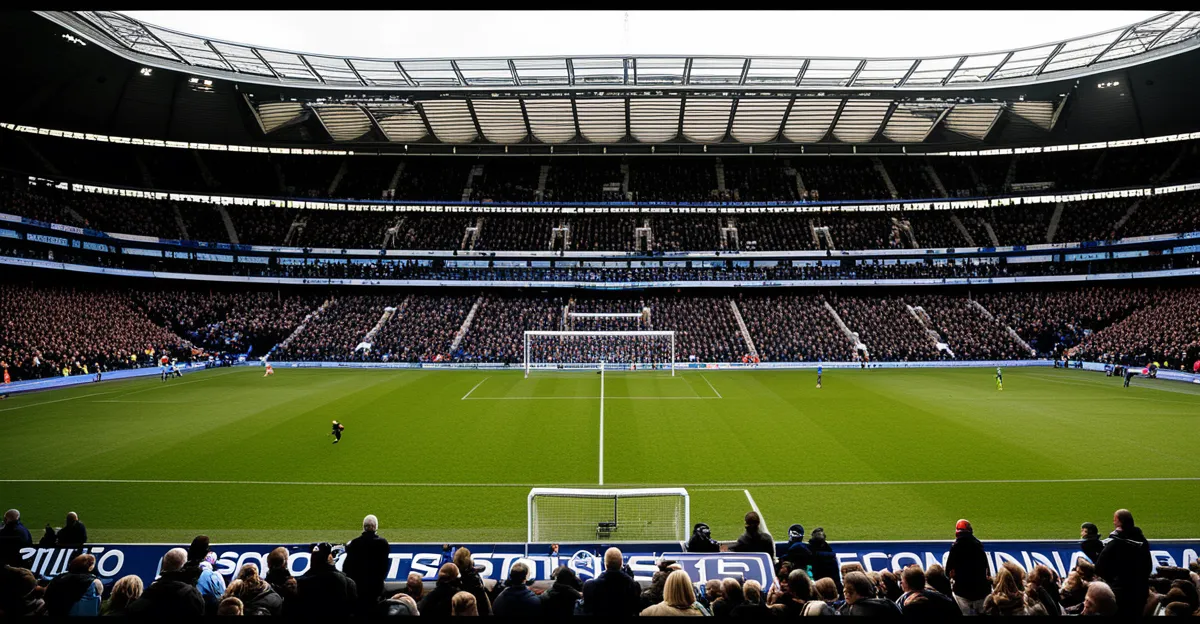Key Factors Behind the Global Appeal of UK Sports Venues
The global popularity of UK sports stadiums is driven by a combination of architectural grandeur, rich history, and the hosting of landmark international events. Iconic stadium designs, such as the sweeping arch of Wembley Stadium, create a visual impact that resonates well beyond the UK. These structures are more than just venues; they are symbols of sporting excellence and cultural pride. Visitors are often drawn to the aesthetics and innovative engineering that elevate the stadium experience.
The historic significance and legendary moments in UK sports also contribute heavily to their allure. Many UK venues have witnessed memorable events and historic victories, turning them into pilgrimage sites for international tourists eager to connect with sporting heritage. For example, grounds like Old Trafford and Wimbledon are steeped in stories that richly appeal to fans worldwide, providing a tangible link to the past.
Also to read : What are the economic contributions of UK sports to the national economy?
Additionally, the role of international sports events hosted in these stadiums cannot be overstated. Large-scale tournaments such as the FA Cup finals or Wimbledon Championships attract global audiences and boost the worldwide profile of the venues. These events act as significant drivers in UK sports tourism, drawing international tourists who want to experience the atmosphere firsthand. Overall, the combination of architecture, history, and global events establishes the UK as a key destination in the sphere of sports tourism.
Notable UK Sports Venues Drawing International Tourists
The global popularity of UK sports stadiums is clearly reflected in the immense visitor numbers at famous venues like Wembley Stadium, Old Trafford, and Wimbledon. These arenas are not only iconic for their sporting heritage but also for their commitment to enhancing the fan experience through innovative design and visitor amenities.
Topic to read : How Can UK Sports Reforms Shape the Next Generation?
Wembley Stadium stands out as a prime example of how thoughtful architecture and cutting-edge facilities can transform a venue into a tourism magnet. The stadium’s striking design, including its signature arch, offers more than visual appeal; it serves as a beacon for international tourists seeking a world-class sports experience. Visitor amenities such as interactive tours, museum exhibits, and state-of-the-art hospitality suites further contribute to Wembley Stadium tourism, making it a sought-after destination beyond just match days.
Old Trafford, known as the “Theatre of Dreams,” draws thousands of football fans globally. The high demand for Old Trafford visits is driven by the stadium’s rich history intertwined with Manchester United’s legacy. The venue offers comprehensive tours that delve into its storied past, combined with modern facilities designed for visitor comfort. This fusion of history and innovation keeps Old Trafford at the forefront of UK sports tourism drivers.
Wimbledon, as a premier tennis venue, transforms into a coveted tourism hotspot during the Championships. The historic significance of Wimbledon, alongside its well-preserved traditional features and modern enhancements, attracts a diverse international audience. Wimbledon tourism benefits not only from the grand slam event’s worldwide broadcast but also from the year-round engagement programs and visitor centers that immerse guests in tennis culture.
In summary, these famous UK sports stadiums excel in providing compelling visitor experiences through architectural splendor, historic context, and practical amenities. Each of these arenas exemplifies how UK sports tourism thrives on combining tradition with modern appeal, thus driving increased international tourist interest consistently.
Strategies and Partnerships Promoting Sports Tourism
UK sports tourism thrives largely due to strategic collaborations and well-planned partnerships that amplify the reach and appeal of major sports venues. A key driver is the collaboration between tourism boards and sports clubs, which pool resources to create powerful promotional campaigns. These partnerships help leverage the global popularity of UK sports stadiums to attract international visitors consistently.
One effective approach is the integration of digital marketing with global broadcasting rights. By showcasing iconic stadium events and behind-the-scenes tours through online platforms, the UK effectively markets its sports venues abroad. This strategy not only targets existing sports fans but also engages a broader audience curious about the unique visitor experiences offered, such as interactive stadium tours and hospitality packages.
Another pivotal element is the bundling of sports venue tours with broader travel packages. Travel agents and tourism operators collaborate with venue management to offer comprehensive packages that include match tickets, guided stadium visits, local accommodations, and cultural experiences. This integrated offering appeals to international tourists by simplifying trip planning and enriching their overall travel experience.
Together, these strategies and partnerships form a cohesive framework that enhances the visibility and attractiveness of UK sports venues on the global stage. They play a crucial role in sustaining the momentum of UK sports tourism drivers, making the country a premier destination for international sports enthusiasts.
Economic Impact and Local Community Benefits
The economic impact of UK sports tourism is substantial, with major venues generating significant revenue through ticket sales, hospitality, and merchandise. These income streams not only support the maintenance and enhancement of famous UK sports stadiums but also contribute to the wider economy. For example, Wembley Stadium tourism alone funnels millions into local businesses, ranging from hotels to restaurants, illustrating how sports venues serve as economic engines.
Beyond direct financial gains, UK sports tourism drivers stimulate job creation in areas surrounding stadiums. Employment opportunities arise not only within the venues—covering roles in event management, security, and customer service—but also in supporting sectors such as transportation and retail. This boost in employment often leads to neighbourhood regeneration, improving infrastructure and raising living standards in previously underdeveloped areas.
Long-term growth is sustained by the continuous hosting of recurring international sporting events, which maintain steady visitor numbers and tourism revenue. These events create a ripple effect that benefits local communities economically and socially, fostering a sense of pride and investment in sports culture. As a result, the benefits to local communities extend well beyond the stadiums themselves, contributing to urban revitalization and enhancing the UK’s reputation as a global sports tourism destination.
Insights from Industry Experts and Future Trends
Industry experts consistently highlight the pivotal role of the global popularity of UK sports stadiums in shaping the future of sports tourism. According to sports event managers, the UK’s ability to blend tradition with innovation positions its venues as leading attractions for international tourists. This is a key factor in sustaining UK sports tourism drivers amid increasing global competition.
Experts note that as technology advances, the integration of immersive experiences such as virtual reality tours and augmented reality in stadium visits will heighten engagement for international visitors. This technological adoption is not only expected to enhance visitor satisfaction but also to broaden accessibility, allowing fans worldwide to connect with iconic UK arenas virtually. These innovations align closely with evolving visitor expectations, responding to the demand for interactive and highly personalized experiences.
Forecasts from tourism officials predict that the strategic use of data analytics will further refine UK tourism strategies by enabling targeted marketing and optimizing event scheduling. This data-driven approach can boost visitor numbers by efficiently reaching niche international markets interested in specific sports or events hosted at the UK’s famous stadiums.
Moreover, expert opinions emphasize the growing importance of sustainability in venue management, with eco-friendly practices becoming a decisive factor in attracting environmentally conscious tourists. Future trends suggest that UK sports venues will increasingly adopt green technologies, reinforcing their global appeal while addressing broader social concerns.
In conclusion, industry leaders agree that the fusion of cutting-edge technology, strategic partnerships, and sustainable practices will define the future landscape of UK stadium tourism, ensuring its continued prominence on the world stage.









